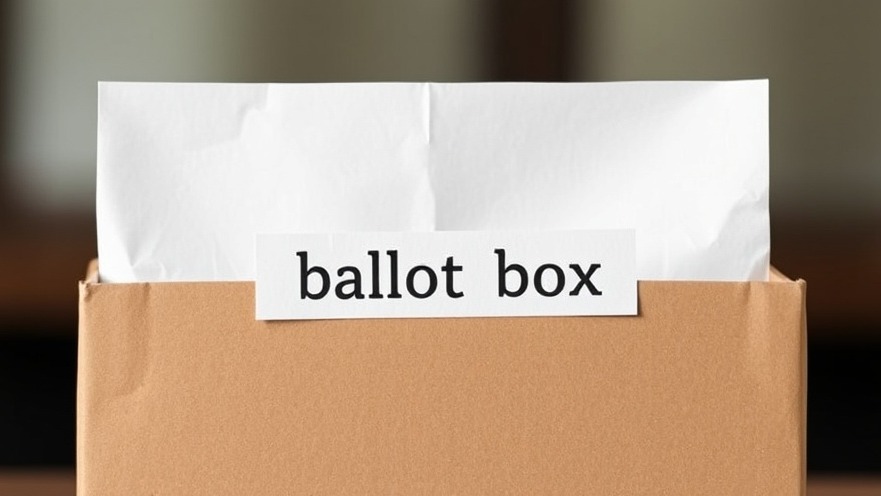
A New Moment in Texas Voting Rights
The U.S. Justice Department (DOJ) is turning up the heat on Texas regarding its voter registration processes, requesting access to the state’s registered voters and specifics on how the state maintains its voter lists. This push is part of a broader effort aimed at ensuring all states comply with federal election laws. For many Texans, the ramifications of this request could reach deep into the community, raising important questions about privacy and accessibility in voting.
The Request: What’s at Stake?
In a letter dated August 7, 2025, the DOJ outlined its demands, which include information about canceled voter records and the removal of non-citizens from the rolls. This is part of a series of inquiries sent to various states, highlighting the DOJ’s commitment to uphold election integrity across the nation. The state of Texas has been given a 14-day window to respond, but they are currently in the midst of transitioning to a new voter registration management system known as TEAM (Texas Election Administration Management).
Security vs. Privacy: The Ongoing Discussion
The tension between ensuring voter security and maintaining voter privacy is palpable among election officials. While the DOJ insists that these requests are necessary for enforcing election law, critics worry about the potential for mishandling sensitive personal information. For example, Maine has already opted not to comply with similar requests, citing privacy concerns. Texas election officials, like Christina Adkins, have emphasized their unique context, explaining that the state’s current inability to fulfill the request stems from the ongoing system upgrade and not a lack of willingness.
The Broader Context of Voter Registration
This latest move by the DOJ is not entirely surprising, given a broader national trend toward increased scrutiny of voter lists. Under previous administrations, similar tactics were employed with the intention of tightening the registration and voting processes, but the impact on various demographics often sparked significant debate. As states wrestle with the balance of keeping voter rolls up-to-date while protecting individual rights, many wonder what this means for turnout and accessibility in the upcoming elections.
The Potential Impact on Texans Ahead of Elections 2025
As we approach 2025, the implications of these voter registration inquiries could resonate through political races across Texas. With several critical elections on the horizon, including state and local positions, the efficiency and transparency of voter registration processes become paramount. Many Texans may feel anxious over how such federal requests could potentially complicate or delay their ability to vote, which could hamper civic engagement if not handled properly.
Looking Forward: What Should Texans Expect?
In the near future, Texas voters could face changes in how registrations are managed and reported. As Adkins indicated, the state is committed to addressing the DOJ’s request once it navigates the transition to the new management system. However, this signifies a pivotal moment for Texas politics where new policies could shape the landscape of power and representation. Voter education campaigns may become increasingly critical in ensuring that Texans are aware of their rights and options during this period of change.
Conclusion: The Importance of Engagement
With the discussions surrounding voter registration heating up, it is essential for Texas residents to stay informed about these developments. It is encouraged that individuals actively participate in discussions about their voting rights and access to polling places. Remaining engaged will be crucial in navigating the evolving landscape of Texas elections. As these changes unfold, Texans should be prepared to advocate for transparent and secure voting practices that respect individual privacy.
 Add Element
Add Element  Add Row
Add Row 



Write A Comment